Bill C-6, federal legislation aimed at banning the harmful practice of conversion therapy, was recently debated and passed in the House of Commons with almost unanimous support from MPs of all parties.
Almost, but not quite. Controversial Belleville-area Conservative MP Derek Sloan and six others balked at the bill, outraging Canada’s LGBTQ+ community.
At the same time another Tory MP from Eastern Ontario — Stormont-Dundas-South Glengarry’s Eric Duncan — stole the show with a spirited defence of the ban and a poignant testimonial about embracing his own homosexuality.
Conversion therapy is “any formal therapeutic attempt to change the sexual orientation of bisexual, gay and lesbian individuals to heterosexual,” according to the Canadian Psychological Association. The CPA opposes any form of the practice.
Bill C-6 would also ban conversion therapy aimed at changing a transgender individual’s identity to the one they were assigned at birth.
In an analysis of 13 empirical studies, 12 indicated that conversion therapy was harmful and ineffective, according to research conducted by Cornell University.
In the Commons debate on conversion therapy, Duncan delivered a memorable speech in support of Bill C-6. The Cornwall-area MP, the first openly gay Conservative elected to the federal Parliament, shared his personal story and his unshakeable sense of identity.
“I was out to my family and friends,” Duncan said during the bill’s second reading, “and I had decided that it was important for me to let my community know that I am a proud gay man, so that I could live my life openly, happily and freely.”
Meanwhile, Sloan — the MP for Hastings-Lennox and Addington — has described the passing of the bill as “effectively putting into law child abuse.”
With their ridings separated by only 200 kilometres along Hwy. 401, Duncan and Sloan represent the socially progressive and socially conservative poles of a party that — as in the case of conversion therapy — is sometimes starkly polarized.
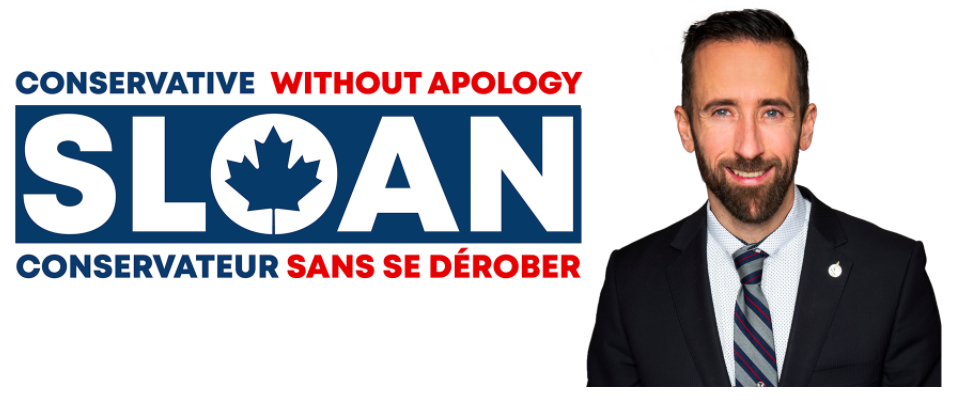
Having free rein to vote on matters of conscience permits Conservative MPs to occasionally break ranks.
And Bill C-6 is not the only issue that divides Tory MPs. Abortion, capital punishment, immigration, religious expression and LGBTQ+ rights are among the issues that have historically created great tension within the party.
While generally united on economic matters, social issues can divide the “big tent” Conservative Party of Canada. And Erin O’Toole, still very early his tenure as leader, is tasked with keeping the tent intact.
O’Toole won the August 2020 Conservative leadership race over chief rival Peter MacKay — the perceived frontrunner — when he was able to attract significant secondary support from those who had initially backed Sloan and Leslyn Lewis, another social conservative whose popularity was perhaps the most surprising storyline of the leadership contest.
MacKay blamed his loss to O’Toole, in part, on his own lack of appeal among social conservatives.
“When you open the door to a crack of daylight on these social issues,” MacKay told CTV News in September, “it becomes very, very difficult to win the country, to present the party as modern, inclusive, as a party that is committed to focusing more on the economy than debating the past — and I just made that very clear to my team from the beginning.”
Defeated leadership candidates, current MPs and a former party stalwart turned critic and competitor — Maxime Bernier, leader of People’s Party of Canada — view the O’Toole leadership as a defining moment for the Conservative party as it seeks to modernize while mollifying the sizable group of social conservatives.
In an Oct. 30 speech to the Canadian Club of Toronto, O’Toole slammed Liberals as out of touch with the country and identified middle-class and working-class Canadians as the key groups Conservatives need to attract.
“These elites have only one set of values centred on unchecked globalization and political correctness, while middle-class Canadians have had another set rooted in family, home and nation,” said O’Toole.
An appeal to middle-class voters is hardly a unique take from a federal party leader. While the Liberal Party, New Democratic Party and Green Party all court the middle class, O’Toole’s framing of his mission may signal a reach towards more progressive voters.
Chasing the centre
His challenge is to chase those votes without alienating the traditional base of his party — including social conservatives.
According to a recent survey conducted by Leger, the Canadian polling and market research company, 44 per cent of respondents said they would be more likely to consider voting Conservative knowing that O’Toole is pro-choice on abortion and supports same-sex marriage.
Comparatively, the same survey indicates that the endorsement O’Toole received from Alberta Premier Jason Kenney during the leadership race made 20 per cent of those Canadians polled less likely to vote for the federal Conservatives.
Before his tenure as premier, Kenney was a federal cabinet minister. The former MP for Calgary Southeast introduced three petitions to prevent same-sex marriage from being legally recognized.
While O’Toole’s personal stance on social issues may appeal to centrist voters, he also campaigned strenuously during the leadership race to gain the trust of the party’s hard-right social conservatives.
In the campaign, O’Toole adopted the slogan Take Back Canada, echoing the “Make America Great Again” rhetoric of U.S. President Donald Trump’s and other right-wing politicians in the United States. O’Toole worked strategically — and ultimately successfully — to secure “second-choice support” from Sloan and Lewis backers, even voicing concerns about the Liberal’s planned conversion therapy bill in one virtual meeting with social conservatives from Quebec, according to a June report from the CBC.
But according to Duncan, one of the key messages from O’Toole’s Oct. 30 speech in Toronto was the need for the party to pick up support from Canadians who traditionally vote left or centre-left.
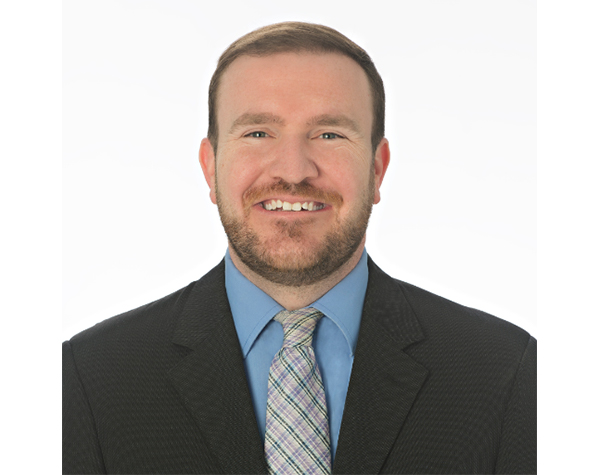
“We’re trying to reach out and get people that have voted Liberal in the past — even NDP in the past — and attract them into the party.”
Duncan also identified O’Toole as a “unifier of the party,” citing his allowance for social conservatives to vote freely on matters of conscience, while still creating a party that can attract moderate, centrist voters.
“Canada changes, Canada evolves, and the party needs to reflect that through its diversity,” said Duncan. “O’Toole is helping to modernize the party.”
Duncan supported an amended version of Bill C-6 that protects private conversation surrounding personal views on sexual identity. The party, according to Duncan, has accepted his membership with open arms as it continues to promote greater diversity in its ranks and in Parliament.
As he ended his response during the second reading of Bill C-6, Duncan touchingly addressed young LGBTQ+ Canadians.
“It is OK to be gay. It is OK to be trans. It is right for them to live their lives as who they are and be who they are. Canadians know that subjecting anyone to conversion therapy is wrong and we must protect those who are vulnerable.”
Uniting the party was also identified as a strength of O’Toole’s leadership by the controversial Sloan. He placed a distant fourth in the Conservative leadership race after receiving just over 14 per cent of the vote. He had entered the contest as a freshman MP with limited experience, having only begun his political career in 2018.
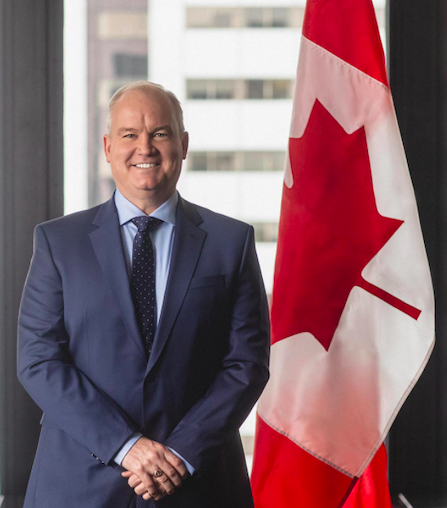
For now, O’Toole’s big tent is sheltering Sloan and his socially progressive colleague down the 401, Duncan.
In a survey conducted by the Campaign Life Coalition in October 2018, Sloan answered “No” to the question: “Are there any circumstances under which you believe a woman should have access to abortion?” The Campaign Life Coalition is a social conservative lobbying group.
Bill C-6 isn’t the first time Sloan has had a difference of opinion than the vast majority of Conservative members, having previously drawn critical attention to himself after questioning Dr. Theresa Tam’s loyalty to Canada this summer in a moment widely condemned as anti-Asian bigotry.
While some politicians slammed Sloan’s remarks as naked racism, O’Toole did not comment on the MP’s remarks, according to The Globe and Mail.
And now Sloan is sponsoring a petition that suggests the way COVID-19 vaccines are being approved amounts to “human experimentation.” O’Toole says he disagrees with a petition and says he has faith in Health Canada and in the advice provided by Canada’s chief public health officials.
Social issues have long been used to divide the Conservative party, according Sloan. If given a “fair hearing”, he said he believes many Canadians would adopt a conservative or social conservative position.
“Conservatives are more reflective of the actual Canadian position, which is that there’s a diversity of views on these issues — and, in fact, that there’s a real debate to be had on different aspects of these,” he said. “For the other parties, it’s one way or the highway, and if you disagree, you’re a bigot.”
As the party looks to the centre for new Conservative voters, Sloan said that he has “no problem proselytizing to weary Liberals or upset NDP.”
Since the party’s reunification and relaunch as the CPC in 2003, it has softened its stance on some social issues, such as same-sex marriage — an issue that will not be contested if the Conservative party forms government, O’Toole has said.
For example, in the historic 2005 vote on legally recognizing same-sex marriage, only three Conservatives voted to support the bill, which was passed 158-133.
The Conservative party broadened its definition of marriage to include same-sex partnerships in 2016.
In the past, Duncan has been outspoken about his personal experiences and stood up for the LGBTQ+ community in January when Richard Décaire — Stephen Harper’s deputy chief of staff — described homosexuality as a choice.
Although the Conservatives have officially reversed their stance on same-sex marriage, there is still a long way to go, according to Helen Kennedy, executive director of Egale Canada, an advocacy group that promotes LGBTQ+ equality.
“Erin O’Toole allowed members of his caucus a free vote on conversion therapy,” said Kennedy. “I mean, that’s ridiculous. That’s something that does so much harm to LGBTI people.”
LGBTI stands for Lesbian, Gay, Bisexual, Transgender, Intersex, according to Egale Canada’s website.
While the Conservative party touts a more diverse membership, with the inclusion of more LGBTQ+ and visible minority MPs than it has in the past, this isn’t necessarily a sign of changing tides, Kennedy explained.
“To me, it’s great to have out Conservative members of Parliament, but it’s more important that they be progressive,” she said.
The shift in Conservative rhetoric surrounding marriage equality has been a sign of some change, and that O’Toole has a more progressive track record than previous leaders, Kennedy said.
“(But) I think they still, you know, they are a few leaders away from a full shift, I would say,” Kennedy said.
While Duncan said O’Toole’s Canadian Club speech was a positive effort in appealing to a more centrist base, former Conservative MP Maxime Bernier — who came within a whisker of defeating Andrew Scheer for the party leadership in 2017 — decried the same address as an example of O’Toole’s “Liberal-lite” tendencies.
“At that time, he was saying to these people that he was a strong fiscal conservative, and he was telling the social conservatives that they will have a big place under him,” said the seatless PPC leader. “Now … he said that his goal is to split the Liberals’ vote, and yes, to be a more central-left political party.”
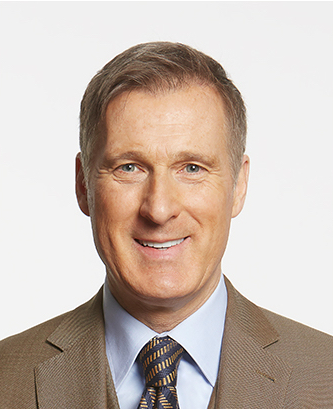
He did so, he said, because “after that (leadership race), because the establishment of the Conservative Party of Canada were not interested in our platform and our policies that we were putting forward during that leadership contest.”
Bernier added: “Andrew Scheer told me that he won’t take any of our ideas and I was not speaking for the party, I was speaking for myself.”
The PPC is framed to appeal to a right-wing appetite for fiscal conservatism and restricted immigration, and would allow its MPs to introduce a bill on any issue to the House of Commons, according to Bernier. But the party has had negligible success at the ballot box.
While characterized as further right than the Conservative Party of Canada, the PPC has fielded candidates who are anti-choice on abortion and who support steep immigration restrictions, and the party includes “ending official multiculturalism” in its platform.
Although Bernier said he is personally pro-choice and his party “won’t weigh in” on social issues, he acknowledged party members are free to bring forward their own bills and vote independently on social issues.
“I think Erin O’Toole won’t be able to win the next time because people will decide, you know, if I like the Liberals and Liberal policies, I will vote for the Liberals — not for a fake one,” said Bernier.
After leaving the party, Bernier’s new party ran candidates in 315 ridings. The People’s Party of Canada was unable to grab a single seat in the 2019 election, receiving a meagre 1.6 per cent of the popular vote nationwide.
Bernier also unsuccessfully ran in the York Centre byelection in October, garnering just 3.6 per cent of the ballots cast.
O’Toole’s decision to give Conservative members the ability to vote freely on certain issues is a source of strength for the party, said Leslyn Lewis, who came third in the Conservative leadership race.
“He’s lived up to his campaign promise, and essentially, all that he promised was — with respect to people’s different values and different beliefs — was that he was going to allow free votes,” said Lewis, who has never served as an MP but will be a Conservative candidate in the next federal election.
Free-voting on matters of conscience distinguished O’Toole from MacKay, who insisted on a “solid caucus front.”
Allowing social conservatives a free vote was a concession O’Toole made to secure support.
O’Toole criticized MacKay during the leadership race, saying that because of his requirement for voting along party lines on social issues, MacKay behaves “just like Justin Trudeau does.”
Lewis clearly favours O’Toole’s approach.
“As someone who identifies as a social conservative, I can say that we don’t expect every single issue to go our way,” she said. “If we did, then that would completely negate the concept of the big tent party.”
The ability to have free votes and debate social issues captures the “essence of democracy,” she said.
The “big tent” the Conservative party has erected could even welcome back Bernier and supporters of the PPC, Lewis added.
“It’s always a shame when I see him on the other side, and often as a critic for the same conservative values that I believe that his party also espouse and ours also does,” said Lewis.
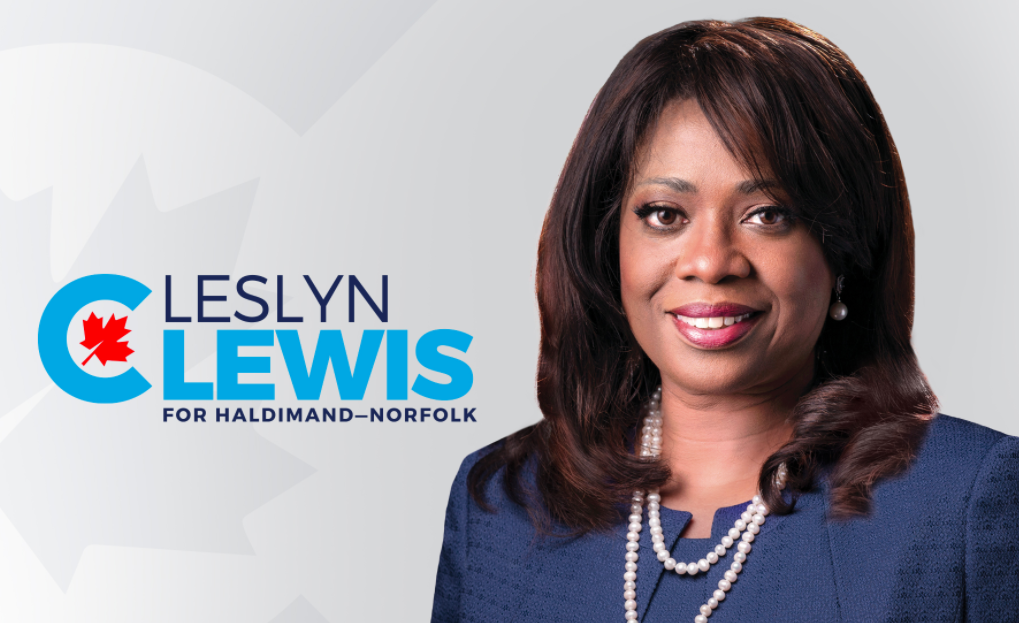
In the next election, she will run in Haldimand-Norfolk, south of Brantford, a seat that has been occupied by Conservative MP Diane Finley since 2004. Finley is not running again.
While Parliament — including most Conservative MPs — have supported banning conversion therapy, free votes on social issues will continue to expose the divided ranks within O’Toole’s party.
While Sloan has begun a fundraising push on the basis of his opposition to the conversion therapy ban, Duncan has been focusing his efforts on eliminating the ban on gay men donating blood.
Some strange sounds are emanating from the Eastern Ontario corner of O’Toole’s big tent.
This story also appears in the Cornwall Standard-Freeholder.




